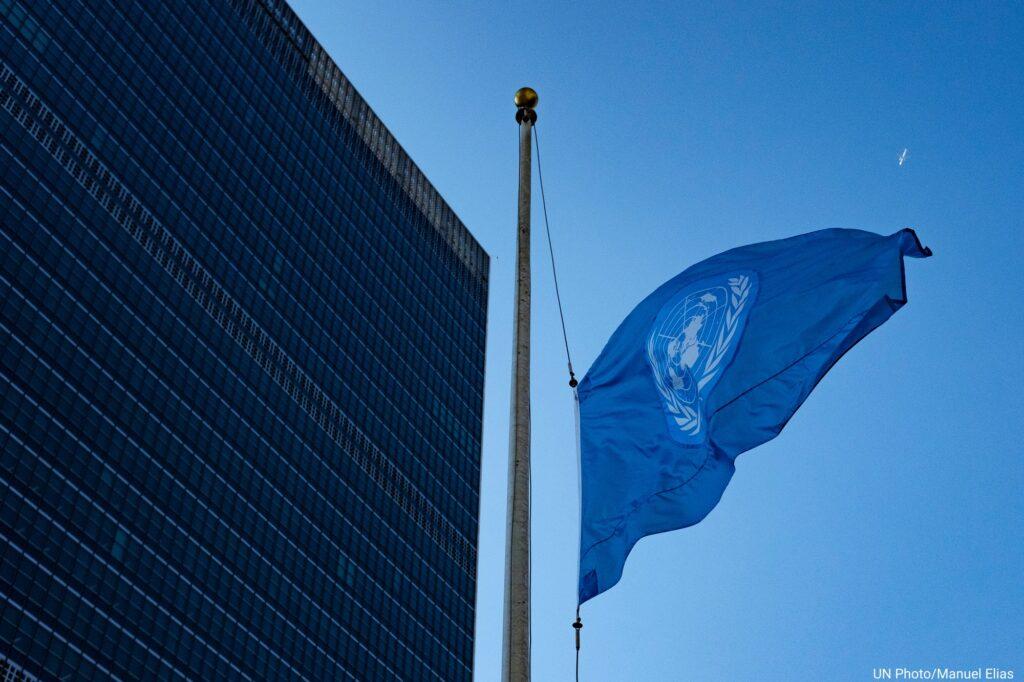A Georgetown University delegation attended the 26th iteration of the United Nations Climate Change Conference (COP26), aiming to uplift stories of women’s climate activism around the world.
Representatives from the Georgetown Institute for Women, Peace and Security (GIWPS) traveled to the conference, which took place in Glasgow, Scotland from Oct. 31 to Nov. 12. GIWPS Senior Program and Policy Coordinator Jess Keller, Research and Policy Director Jessica Smith, Executive Director Melanne Verveer and Allie Smith, Program Director made up the GIWPS delegation to COP26.

The GIWPS team attended the conference with the goal of centering the voices of women and girls in international discussions about climate change, according to Jeni Klugman, the managing director at GIWPS.
“The main message is around the importance of bringing women and girls into the conversation and bringing their expertise and perspective about advancing and implementing solutions,” Klugman said in a phone interview with The Hoya.
Understanding the nexus of gender, climate and security is an essential component of GIWPS’s research, according to Keller and Smith.
“COP26 has been a huge success for our team and an important moment to catalyze gender-responsive climate action,” Keller and Smith wrote. “These are issues that are often talked about separately — but their intersections are critical to our understanding of the gendered impacts of climate change and to identifying effective solutions.”
Women tend to be underrepresented at all levels of climate decision-making, according to UN Women. The status of women in a country is often correlated with the ability of that same country to act toward climate solutions, according to Keller and Smith.
“We know from our Women, Peace and Security Index that where women are doing better, countries are more stable and peaceful,” Keller and Smith wrote. “Recent analysis also found that countries that score better on our WPS Index are also better positioned to address climate change.”
The GIWPS recently published its third edition of the Women, Peace and Security Index (WPS Index) on Oct. 19, which reports on the status of women’s inclusion, justice and security by providing national index scores and rankings for 170 countries.
The 2021 WPS Index highlighted that the global advance of women’s status has slowed and that the gap within the range of scores has grown. The Index also highlighted how women’s contributions to climate solutions in Colombia, Sudan and Nepal proved effective in mitigating climate-conflict risks.
While at COP26, the GIWPS team spent their time listening to grassroots women activists, Indigenous women, and youth leaders on the frontlines of climate change, according to Keller and Smith. The team also met with delegates from the UNFCCC gender team, foreign ministers, UN Under-Secretaries-General and private sector leaders at the conference.
COP26 organizers also selected GIWPS to host an official panel event Nov. 8 titled “Sustainability, Equality, Peace: Integrating Climate Change & Women, Peace and Security Agendas,” which brought together policymakers, civil society leaders and climate activists for a discussion about the intersection of climate change and gender.
As the world seeks to address the climate crisis, stakeholders must ensure women are centered in interventions, that climate policy is gender-sensitive and that women have full and equal access to these opportunities, according to Keller and Smith.
“We are seeing growing momentum by governments including the United States and international institutions, such as the UN Security Council and NATO to address climate security and GIWPS is working to ensure policies, investments, and interventions leverage the contributions of women on the frontlines,” Keller and Smith wrote.
COP26 was initially scheduled to take place in November 2020, but involved parties collectively decided to postpone the conference until 2021 due to safety risks posed by the COVID-19 pandemic. COP26 was a highly anticipated conference for GIWPS, Klugman said.
“I think this conference is in many ways historic. This unprecedented attention — I can’t recall a previous conference to which so much mainstream media attention has been directed,” Klugman said. “This is a high-profile opportunity to show how we can work in collaboration with others.”
The conference provided a forum where the GIWPS representatives could highlight women’s work on climate change in an international forum, according to Keller and Smith.
“GIWPS is thrilled to be attending COP as part of the Georgetown delegation. This has been an important opportunity for us to further our climate work and deepen relationships with others committed to centering women in climate action,” Keller and Smith wrote.




















